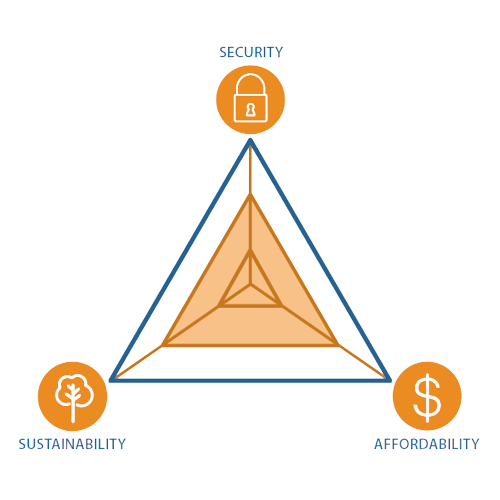Trilemma
As energy leaders and policymakers grapple with the current Covid crisis, New Zealand and the global energy community are reviewing the implications for the speed and direction of energy transition. Energy related projects often stimulate significant investment and can create jobs where there is a sound regulatory environment across the sector. New Zealand’s policymakers, investors and consumers all have important roles to play in shaping how a post-Covid future might look. As we strive to sell our goods and services to the rest of the world, increasingly low carbon energy will be an enabler of this new society by driving innovation, economic recovery and creating a positive image for New Zealand.
Attention in the energy sector has turned to balancing the need for survival and recovery. Recent developments present both challenges and opportunities for New Zealand’s economy and energy system with the prospect of New Zealand’s major industrial electricity user – the Tiwai Point Aluminium Smelter – exiting the country as well as uncertainty over New Zealand’s petrol refinery and steel producer.
Announcements from energy leaders across the globe point to expectations the pandemic will stall demand for oil and gas for a prolonged period and accelerate the global shift to cleaner power and fuels. Renewable energy creates an opportunity to diversify energy sources and increase energy independence.
Meanwhile, energy leaders highlight the accelerating digitalisation opportunities in energy and the new challenges of resilience – for people and value chains, as well as cyber security. To accelerate a clean, affordable, reliable energy transition, we need to think about demand side disruption as part of the ‘new normal’, particularly in a post-Covid era. This reminds us of the importance and speed of the demand side in achieving changes in the sector. We can’t overlook the very real opportunity this crisis provides.
TOP 10
OVERALL RESULTS
1. Sweden
2. Switzerland
2. Denmark
3. Finland
4. United Kingdom
4. Canada
5. Austria
6. Norway
6. France
7. Germany
8. New Zealand

